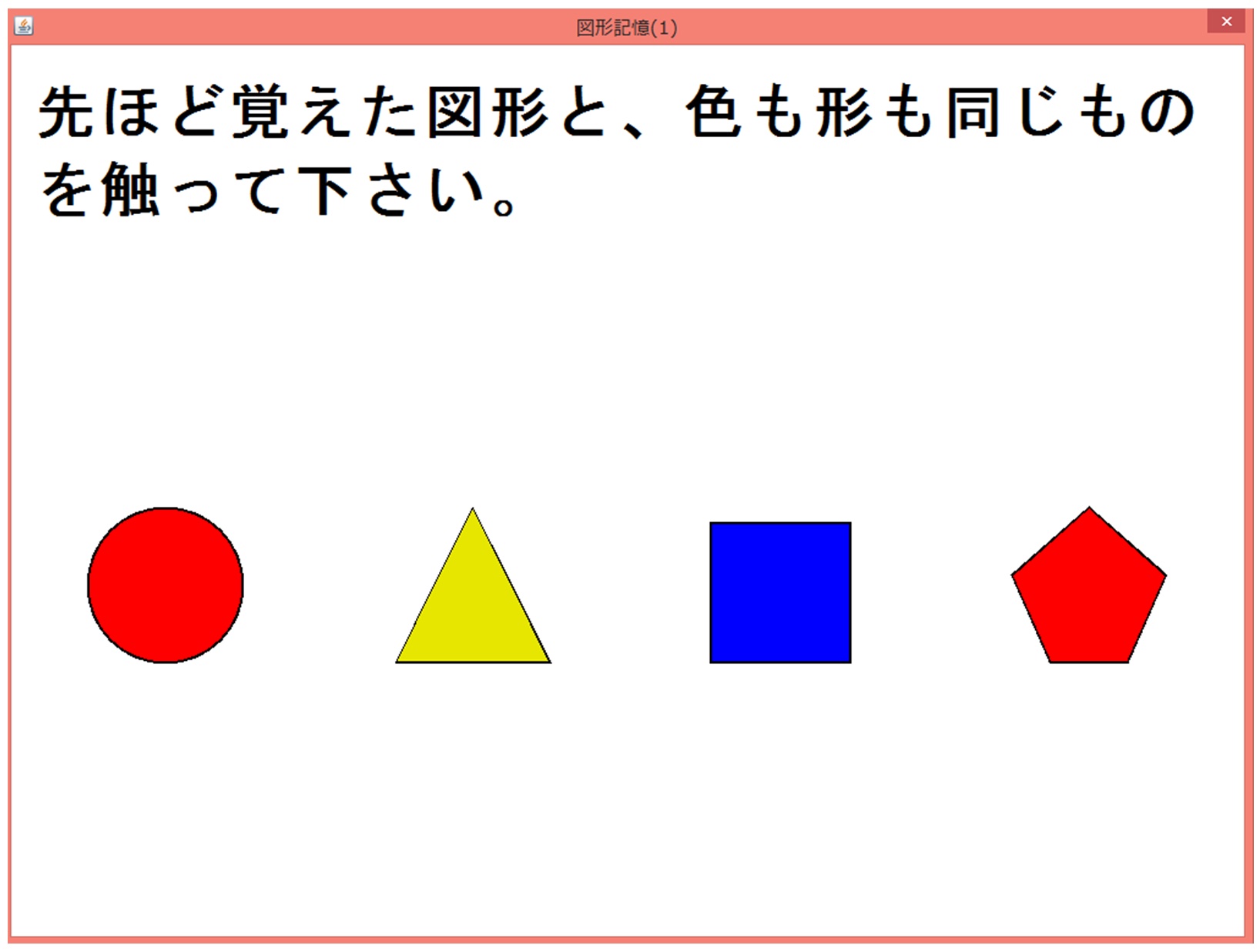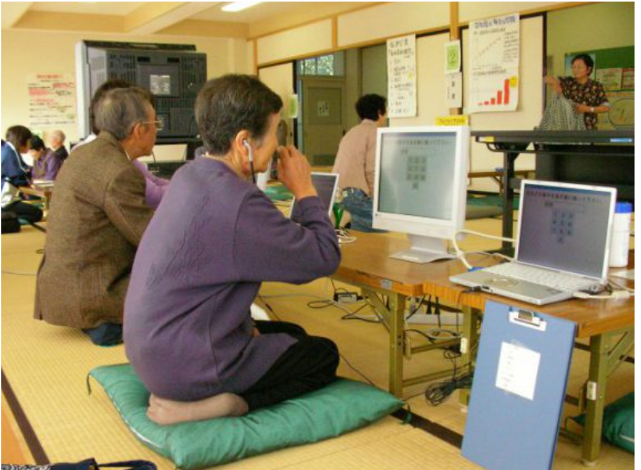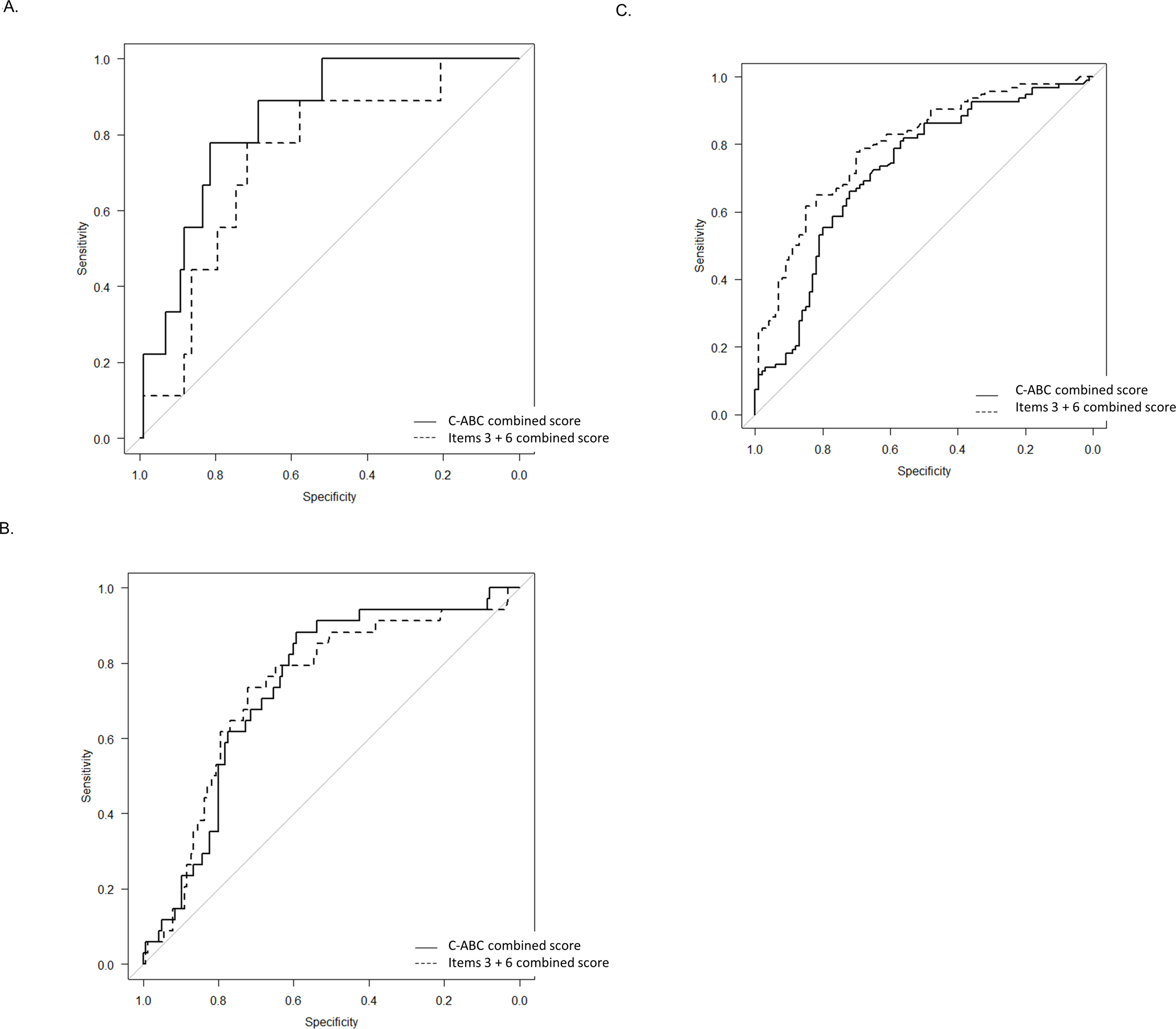Abstract:Researchers from Kanazawa University developed a new test for dementia and mild cognitive impairment. The computerized assessment battery for cognition (C-ABC) was able to accurately discriminate mild cognitive impairment from normal cognition, and also distinguish dementia from mild cognitive impairment and normal cognition, and took only 5 minutes to complete. This test could increase the early detection of dementia, thus improving treatment options and outcomes for this patient group.
Kanazawa, Japan – As the global population ages, the rate of dementia is increasing worldwide. Given that early detection is critical for treatment, effective ways to screen for dementia are a high research priority. Now, researchers from Japan have developed a new screening tool that can be administered in a matter of minutes.
In a study published in PLOS ONE, researchers from Kanazawa University have revealed a new computerized cognitive test, termed the computerized assessment battery for cognition (C-ABC), which they found to be effective in screening for both dementia and mild cognitive impairment (MCI) in just 5 minutes.
Computerized cognitive tests are frequently chosen over paper-and-pencil versions because they are more precise and do not require training to administer. However, computerized cognitive tests for dementia and MCI generally take 10–30 minutes to complete. Further, the wide range of existing tests can make it difficult for healthcare practitioners to choose one that is suitable for detecting dementia or MCI. The researchers at Kanazawa University aimed to address this by creating a test that could be used to accurately and efficiently screen for both conditions.
“Although patients with dementia usually have disorientation and severe memory disturbance, those with MCI and those with normal cognition rarely have both,” says co-lead author of the study Moeko Noguchi-Shinohara. “We wanted to develop a test that could distinguish these cognitive states in an efficient manner.”
To do this, the researchers collected C-ABC scores from participants in different age groups (50s, 60s, and those aged 70–85 years) with dementia, MCI, and normal cognition. They then conducted a range of statistical tests to determine whether the test could distinguish normal cognition, dementia, and MCI.
“The results were surprising,” explains Masahito Yamada, senior author. “We found that the C-ABC could distinguish individuals with MCI from those with normal cognition using scores from items that only took 5 minutes to complete.”
In fact, in the 75–80 age group, answers from just two questions could distinguish participants with MCI from those with normal cognition, and these two items took just 2 minutes to complete.
“When we compared our C-ABS scores with those from the frequently used Mini–Mental State Examination (MMSE), we found a high correlation. However, the C-ABC is substantially faster to complete than the MMSE, and may be more sensitive to MCI or mild dementia,” says Yamada.
The data indicate that when used with a high cut-off score for sensitivity, the C-ABC is appropriate for initial screening for dementia and MCI. This new tool could make cognitive screening more accessible and efficient, thus enabling earlier detection of MCI or dementia. This, in turn, could improve the treatment options and overall outcome for individuals with MCI or dementia.

figure1
The computerized assessment battery for cognition (C-ABC). The figures-recognition memory test is shown: “please touch the figures with same color and shape as those presented before.”

figure2
People who are performing on the computerized assessment battery for cognition (C-ABC) in a public hall.

Figure.3
The receiver-operating characteristic (ROC) curves to distinguish mild cognitive impairment (MCI) from normal cognition (NC) in the 50s group (A), 60s group (B) and 70–85 group (C). Straight line, the computerized assessment battery for cognition (C-ABC) combined score (this entire procedure took around 5 min); dotted line, the Item 3 + 6 combined score (this entire procedure took around 2 min).
[Article]
Title:A new computerized assessment battery for cognition (C-ABC) to detect mild cognitive impairment and dementia around 5 min
Journal: PLOS ONE
Authors:Moeko Noguchi-Shinohara*, Chiaki Domoto*, Taketoshi Yoshida, Kozue Niwa, Sohshi Yuki-Nozaki, Miharu Samuraki-Yokohama, Kenji Sakai, Tsuyoshi Hamaguchi, Kenjiro Ono, Kazuo Iwasa, Ichiro Matsunari, Kiyonobu Komai, Hiroyuki Nakamura, Masahito Yamada
*equally contributed
DOI: 10.1371/journal.pone.0243469
[Funder]
This research was supported by a Grant for Development of Advanced Technology for Measurement and Evaluation of Brain Functions, Ishikawa Prefecture Collaboration of Regional Entities for the Advancement of Technological Excellence, from Japan Science and Technology Corporation, Japan, by a Grant for the Knowledge Cluster Initiative [High-Tech Sensing and Knowledge Handling Technology (Brain Technology)] from the Ministry of Education, Culture, Sports, Science, and Technology, Japan.



 PAGE TOP
PAGE TOP